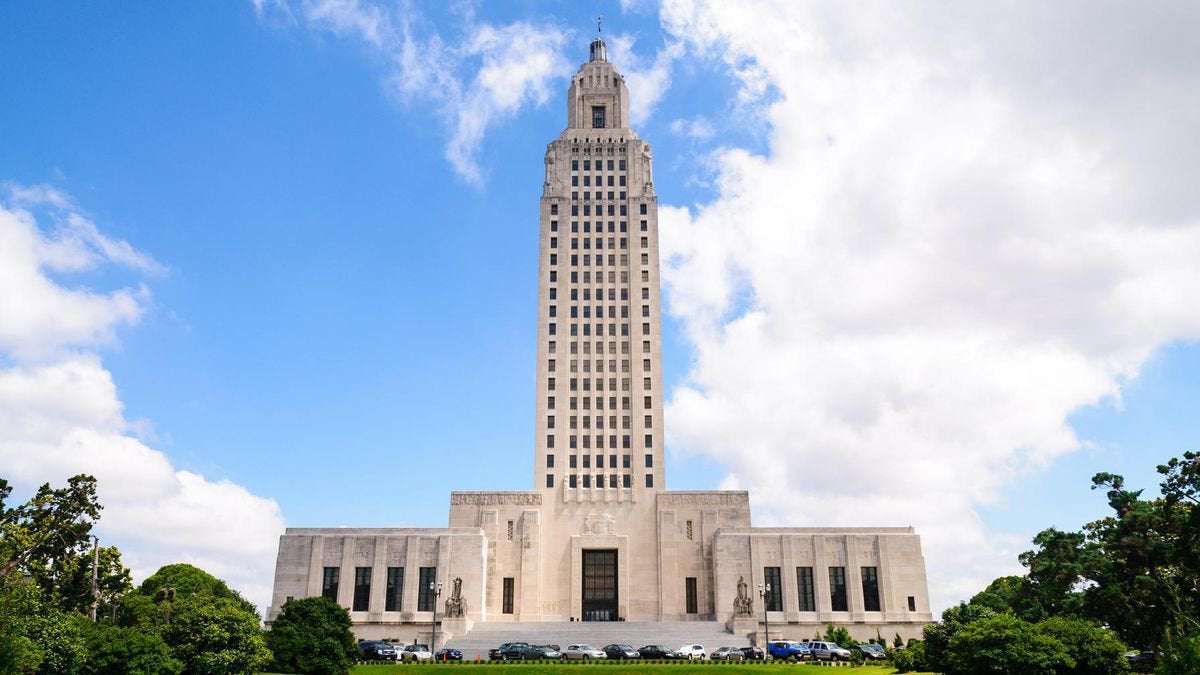Louisiana state Rep. Ray Garofalo (R) said Tuesday public schools and universities in the state should be required to teach the "good" of slavery when discussing race, as part of a bill he proposed to ban "divisive concepts" from classrooms in the latest GOP effort taking aim at how schools are allowed to teach about race.
A Louisiana bill would ban teaching "divisive concepts" in classrooms. getty
Garofalo, who heads the Louisiana House Education Committee, said schools should "talk about everything dealing with slavery—the good, the bad, the ugly" during a fiery committee hearing Tuesday. His suggestion was immediately met with disgust from fellow Republican state Rep. Stephanie Hilferty, who noted, "there's no good to slavery, though." Garofalo's bill would have banned teaching the idea that either the U.S. or Louisiana is "systematically racist or sexist," among numerous new restrictions on what could be taught in a classroom. The bill's committee vote ended up being a 7-7 deadlock, meaning the bill will not move forward to the full House but also hasn't officially been killed.
The Louisiana Democratic Party slammed the statement as "undoubtedly" the low point of the current legislative session.
Garofalo's bill is one of several GOP proposals around the country taking aim at how race can be taught, coming after former President Donald Trump created the 1776 Commission to promote "patriotic education" as one of his final acts as president. That commission sought to promote what Trump saw as patriotic ideals, like venerating the Founding Fathers and downplaying slavery's role in U.S. history. President Joe Biden signed an executive order eliminating the 1776 Commission on his first day in office. Still, GOP efforts persist—specifically targeting a curriculum based on The New York Times' 1619 Project, which examines U.S. history with slavery as its focal point. Trump and many fellow Republicans view the concept as an "indoctrination" of America's youth, while aspects of the 1619 Project have also come under serious criticism from highly respected historians, who noted they were "dismayed at some of the factual errors in the project and the closed process behind it," while still lauding it as a "praiseworthy and urgent public service." Republicans have also taken aim at critical race theory, which holds that American institutions are inherently racist since they function to create racial inequity in the United States. Garofalo’s bill would also ban teaching critical race theory.
Bill targeting critical race theory divides La. lawmakers (The Associated Press)
Trump Signs Executive Order To Establish A 1776 Commission To Instill ‘Patriotic Education’ (Forbes)
GOP states weigh limits on how race and slavery are taught (The Associated Press)

-Nude-Tayne on April 28th, 2021 at 11:53 UTC »
I teach English Language Arts in a Louisiana middle school. This is *already* part of the state curriculum. Both for the 7th and 8th grades.
Our curriculum comes from the state. In theory, every middle school ELA classroom is supposed to be teaching the same lessons on the same material.
In the 7th grade, we read excerpts from "Behind the Scenes" by Elizabeth Keckley, where one of the learning objectives were "students should understand that people should consider the good and bad parts of slavery before evaluating it." They also selectively choose excerpts where she talks about how bad the slaves had it after emancipation and how some wanted to go back. But there's no context in the curriculum for *why* their material conditions were so bad after emancipation, so it gives the idea that some former slaves missed slavery because it was the good old days.
In the 8th grade, we read a book called "Sugar Changed the World" where the thesis is basically that slavery was really bad, but because it led to *freedom* and *industrialization* it's impossible to really say whether the institutions of sugar farming were good or bad.
It's absolute dog-shit curriculum. I've voiced my refusal to teach these ideas to my students and was met with resistance from my department. It's absolutely insane.
J_B_La_Mighty on April 28th, 2021 at 03:05 UTC »
You can totally teach the good of slavery, its just that the more "benefits" you bring up, the more horrid and twisted it becomes to anyone who sees the human rights violations.
For example, think of all the money you save and your heightened qol forcing someone to do all your chores and raising your kids for no pay, feed them once a day and never take them to the hospital and never let them leave and threaten to hurt them or their families if they try to run. Who wouldn't want a slave!? /s
Granted this scenario is a mish mash of different stories I've heard of recent cases, but the point still stands that as long as you ignore all the human rights violations, slavery is great.
YoshSchmengie on April 28th, 2021 at 01:40 UTC »
Good for the slaveowners definitely. How else was all of that wealth accumulated in the south? Free labour. And it continued after slavery was abolished with Jim Crowe laws and the over incarceration of black men, who were used as chain gang labour to further fill the pockets of industry.